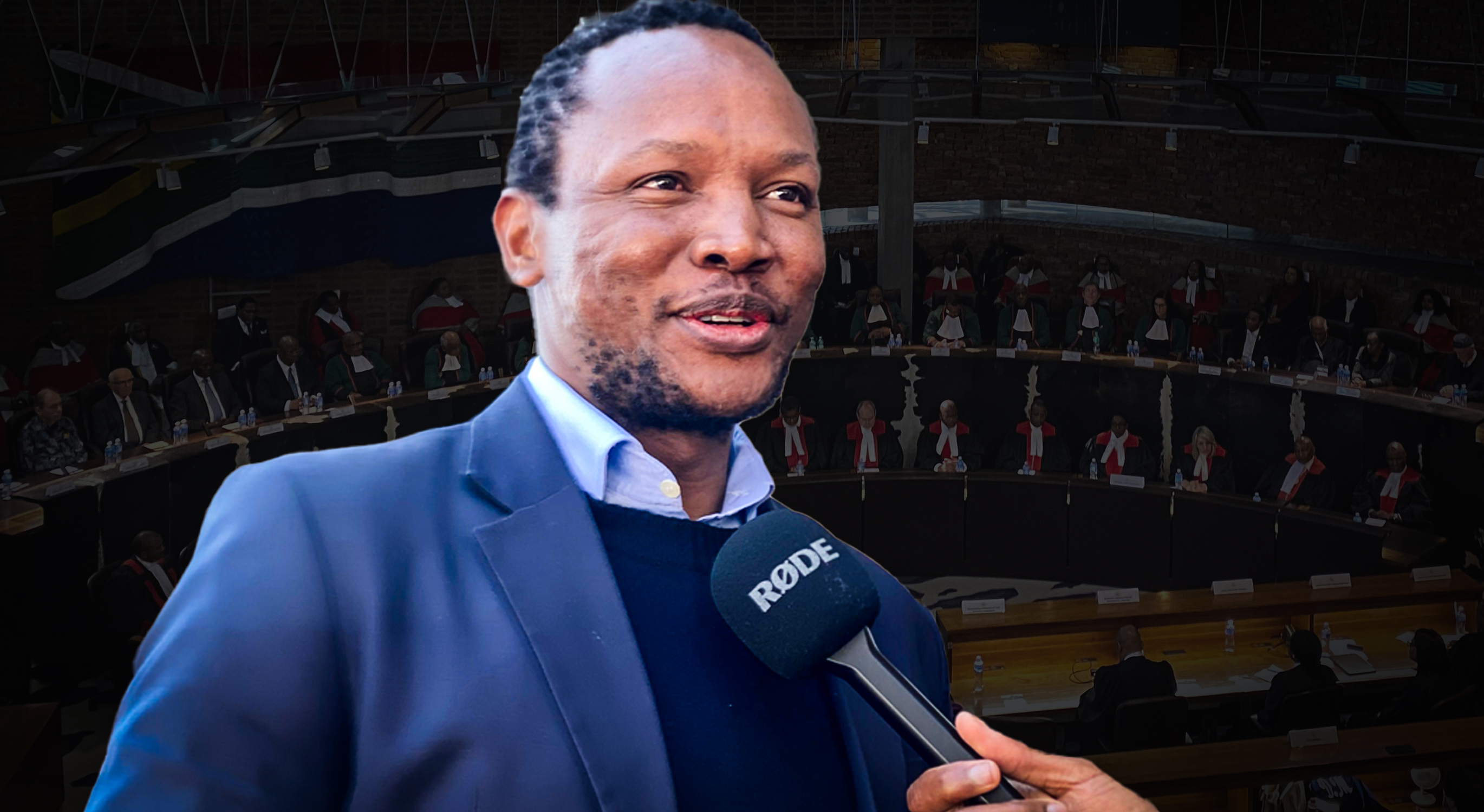When Nkosana Makate walked into the corridors of the Constitutional Court on Thursday, 31 July, where Justice Mbuyiseli Madlanga was set to deliver his final ruling from the bench, he was in high spirits, hopeful that the court would finally bring an end to his battle with telecommunications giant Vodacom, a fight that had gone on for almost 20 years.
Hours later, the court delivered another blow for Makate as it unanimously referred the matter back to the Supreme Court of Appeal (SCA) and instructed that a new panel of judges reconsider the case.
Delivering a scathing judgment, Madlanga described the almost two-decade legal saga as an unending litigation and said the SCA made several errors in its February 2024 judgment, which would have seen Makate net at least R9-billion. That ruling has now been set aside.
“The Supreme Court of Appeal failed to provide adequate reasons for its judgment and disregarded or was unaware of certain material acts and issues before it,” Madlanga said.
WATCH | The Constitutional Court has unanimously ruled in favour of Vodacom, setting aside the 2024 SCA decision that ordered the company to pay Nkosana Makate between 5% and 7.5% of the revenue earned from the service over 18 years. The matter will now return to the SCA. pic.twitter.com/04dTUBZpNz
— Nonkululeko Njilo (@Nkulee_Njilo) July 31, 2025
The SCA had ruled that Makate was entitled to be paid 5% to 7.5% of the total revenue of the Please Call Me (PCM) product from March 2001 to the date of judgment, plus interest. This Constitutional Court had previously ordered Vodacom to pay him “reasonable” compensation, which led Vodacom to offer R47-million.
The R9-billion determined by the Supreme Court of Appeal would have “devastating consequences” for the mobile-network operator, its employees and its investors, Johannesburg-based Vodacom said in its papers.
‘Forever resilient’
Speaking to journalists after the judgment, Makate said: “We expected a different decision but we have to abide by the court’s decision. We will go to the SCA and it must just relook at the case and provide us with a judgment that will then stand the test.”
Asked whether he felt disappointed by the legal system – after years of back-and-forth in his dispute with Vodacom over compensation for the call-back service idea he presented to the company’s product development team while working in its finance division in the 2000s – Makate said:
“I think they could have finalised the matter. We still had a hearing at the high court which they could have gone to as well and then ignored the SCA completely.”
Makate said he remained resilient and was confident that justice would ultimately be served: “I am still resilient, I will forever be.”
While the case has proven to be financially and emotionally costly, Makate said he would explore all avenues available to him.
“We will do what we have to do,” he said.
It was the second time the case was heard by the ConCourt. In 2016, the court affirmed that Makate was the inventor of Please Call Me and ordered Vodacom to enter into good-faith negotiations with him to determine reasonable compensation.
However, compensation talks between Makate and Vodacom have been acrimonious as he accused the company of deliberately withholding information about the lucrativeness of Please Call Me.
In 2020, the High Court in Pretoria made a similar ruling as it ordered Vodacom to play open cards and disclose financial records relating to the Please Call Me service, including the revenue it has generated for the telecommunications giant.
This was considered a victory for Makate, who used the financial records to determine the settlement that Vodacom could shell out for his idea that gave rise to the service. DM





 Illustrative image | Nkosana Makate and the Constitutional Court. (Photos: Nonkululeko Njilo)
Illustrative image | Nkosana Makate and the Constitutional Court. (Photos: Nonkululeko Njilo)